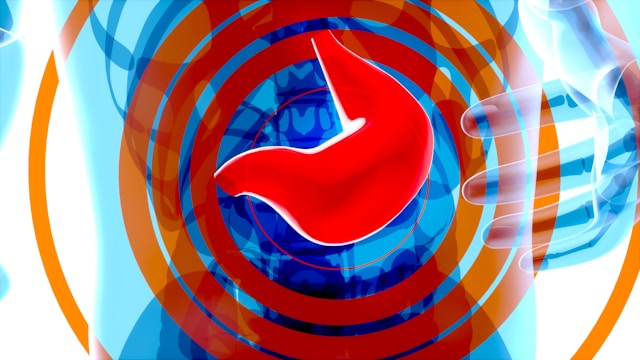The days when addiction was seen as a moral failure and drug use simply a choice are long gone, at least in most of the treatment community. These days substance use disorders are widely described as a chronic brain disease. The National Institute on Drug Abuse defines addiction as “a chronic, relapsing brain disease that is characterized by compulsive drug seeking and use, despite harmful consequences.” This brain disease model of addiction (BDMA) has been promoted by NIDA since the late 1990s and is now frequently invoked by politicians trying to deal with the current opioid addiction crisis in the United States. Addiction journalist Maia Szalavitz, in recovery herself since 1988, offers a different perspective on how addiction works and how it can be overcome. In her new book, Unbroken Brain, she explains why she regards addiction as a learning disorder rather than a brain disease. Szalavitz describes addiction as “a coping style that becomes maladaptive.” Controversially, she maintains that “drug exposure alone doesn’t cause addiction” and that it is rather a learned behavior akin to falling in love–the brain falls in love with a substance. It’s usually not love at first sight, the brain has to learn to love the effect of a drug over a period of time. If there is no learning process, there will be no addiction. For Szalavitz addiction is not about drugs “hijacking” the brain, “simply trying a drug cannot cause addiction; if it could, the problem would occur in every user.” The disease language tends to “overemphasize lack of control,” she told me. “If you see people with addiction as zombies who have no free will, then the impulse is to lock them up instead of helping them.” “It took me awhile to think this through,” she says. When she was in active addiction, she bought into the notion “that you have no choice, that you couldn’t do otherwise. But I came to realize by looking at the data and my own experience and talking to many people with addiction that it’s much more complicated.” “It’s really an impairment in decision making that has shifted priorities–addiction doesn’t make you incapable of saying no but it makes you less capable of saying no,” Szalavitz told me. Much more important than the substance itself are social setting, co-occurring circumstances, and the developmental stage of the user. For Szalavitz, the current opioid addiction crisis was not simply caused by over-prescription of painkillers but mostly by a “serious collapse of the middle class, a lack of meaning, and a sense of hopelessness.” This perceived lack of purpose can be especially challenging for the immature brain. “The highest risk period is adolescence, when the brain is physiologically prepared for deep learning and when, psychologically, the skills necessary to cope with adult emotions and experience are still nascent.” (Unbroken Brain, page 273) Young people most at risk share certain characteristics, writes Szalavitz. They are often impulsive thrill seekers, sad and inhibited persons prone to attempts at self-medicating painful emotions, and a hybrid type who both fears and seeks novelty. “The particular symptoms that people use drugs to cope with may be infinitely varied, but the desire to feel accepted and secure when you typically feel alienated, unloved, anxious, and in danger is common.” Prevention programs which do not address these issues will be ineffective and treatment must go beyond indoctrinating abstinence. For Szalavitz, most treatment programs are still too punitive and too much involved with the criminal justice system. While widely described as a disease, unlike any other medical condition, addiction is often still treated like morally bankrupt criminal behavior. Since substance misuse is often illegal, many users end up in court and are then ordered to take part in 12-Step recovery programs. For Szalavitz this is a fundamentally misguided approach. The 12-Step system was developed by Alcoholics Anonymous in the 1930s as a self-help group and is not based on scientific evidence or principles. Nevertheless, it was the only game in town for decades. According to Szalavitz, at the turn of the century, 90 percent of all addiction treatment was based on the 12 Steps. It routinely requires participants to admit they are powerless, asks them to submit to a Higher Power and make inventories of their character flaws. No medical therapy ever demands anything like that from a patient. Szalavitz would not object to the disease appellation if it meant that addiction treatment was mostly managed by physicians giving you medical advice. But, unfortunately, the term “disease has become freighted with moralism linked to 12-Step programs that dominate addiction treatment,” she says. While the 12-Step method has certainly helped some people, Szalavitz doesn’t think, it should ever be enforced on anybody, least of all by non-medical members of the judiciary. While people attempting recovery from addiction should be empowered and treated with respect, 12-step programs seem to focus on the failures of participants, emphasizing the denial of anything that might feel good. Not necessarily a recipe for success for people struggling to cope with anxiety or other behavioral health issues. In Unbroken Brain, Szalavitz advocates a new approach to addiction. Wherever possible, drug use should not be criminalized, regulation should supersede prohibition. Treatment options should be based primarily on harm reduction and include maintenance programs that administer methadone or buprenorphine, giving the addicted person a chance to learn how to make good choices. Treatment methods must be evidence-based, supported by scientific data and able to address co-occurring disorders. In the case of opioid addiction, one of the few things we know for certain is that “maintenance therapy cuts the death rate at least in half,” she says. Most of all, people suffering from substance use disorders should be treated with compassion. “Because addiction is fundamentally a problematic type of learning, programs to prevent and treat it should rely on what is known about how people learn. Educational research show overwhelmingly that fear and threat are not effective teaching tools.” For Szalavitz, addiction is neither a chronic nor a progressive disease. If is a developmental learning disorder it can be overcome, outgrown, and successfully treated with scientific methods.

Addiction Blog
- Addiction Articles
- Addiction Recovery
- Addiction Research
- Addiction Treatment Programs
- Aftercare & Relapse Prevention
- Alcohol Addiction
- Christian Drug Rehab
- Covid-19
- Detox
- Drug Addiction
- Dual Diagnosis
- Family Therapy & Support
- From Our CMO
- Gender-Responsiveness Treatment
- Guest Blogs
- Health and Wellness
- Holistic Treatment
- Lakeview Health
- Men’s Addiction Treatment
- Mental Health
- News
- Pain Management
- Podcasts
- Prescription Drugs
- Press Releases
- Sober Living
- Stories of Recovery
- Substance Abuse Treatment
- Teen/Young Adult
- Trauma Treatment
- Uncategorized
- Webinar
- Women’s Addiction Treatment



